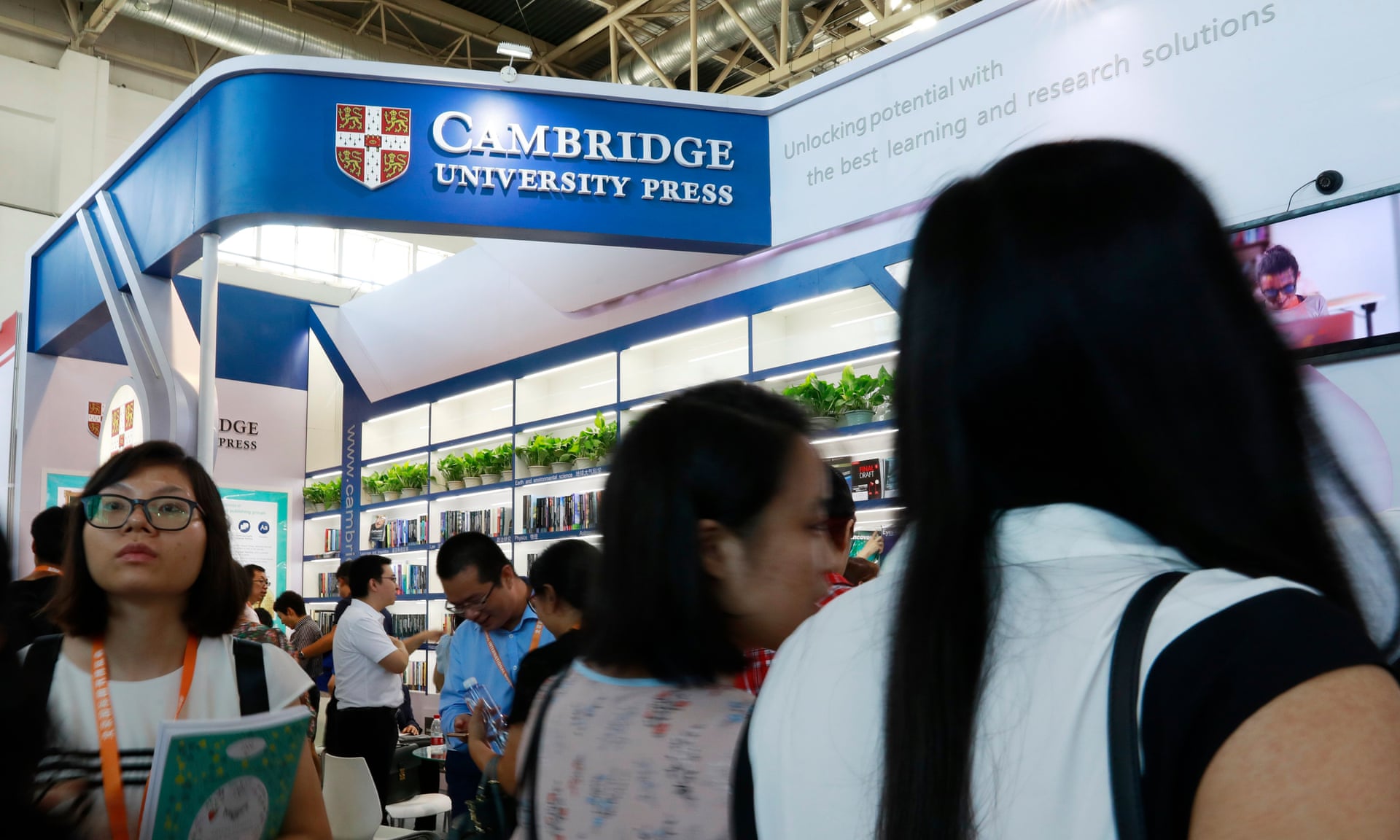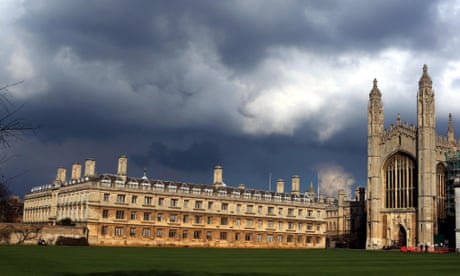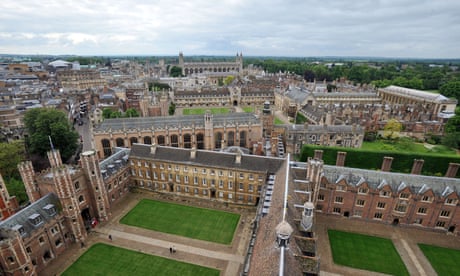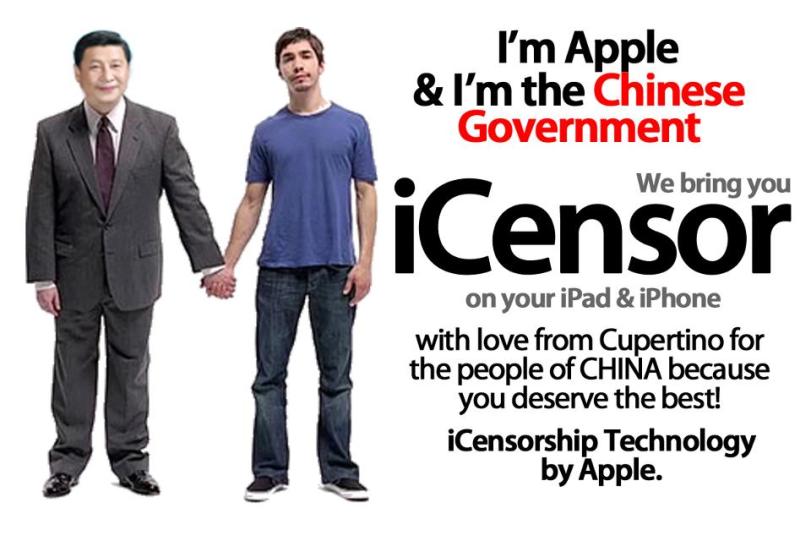
Scholars say they thought a China studies journal was run on Western standards of free expression, but they found Chinese government control instead.
By Elizabeth Redden
Yet another account of censorship involving a China studies journal has come to light.
And the scholars involved say this case involves an insidious “blurring of boundaries” where they were misled into thinking Western publishing standards would apply when in fact the journal in question was subject to Chinese government censorship.
Lorraine Wong and Jacob Edmond, both professors at the University of Otago, in New Zealand, have written an account of the censorship they encountered when they edited a planned special issue of the journal Frontiers of Literary Studies in China.
Lorraine Wong and Jacob Edmond, both professors at the University of Otago, in New Zealand, have written an account of the censorship they encountered when they edited a planned special issue of the journal Frontiers of Literary Studies in China.
The journal is published by the Netherlands-based publishing company Brill in association with the China-based Higher Education Press, an entity that describes itself on its website (in Chinese) as affiliated with China’s Ministry of Education.
The journal's editorial board lists scholars from major American and international universities -- including Cornell University, Duke University, Harvard University, the University of California, Davis, and the University of Washington -- and its editor in chief is based at New York University. The journal’s editorial office is located in Beijing.
Wong and Edmond wrote that the association with Brill, along with the involvement of leading scholars in the field on the editorial board, led them to mistakenly assume the publication standards would be akin to those of other journals in the field published in the U.S.
Wong and Edmond wrote that the association with Brill, along with the involvement of leading scholars in the field on the editorial board, led them to mistakenly assume the publication standards would be akin to those of other journals in the field published in the U.S.
What they found, however, was that the affiliation with the Higher Education Press and the location of the editorial office in Beijing means “the journal is subject to the full range of Chinese government censorship.”
Wong and Edmond encountered this censorship in editing the planned special issue on the topic of “how diverse understandings and uses of the Chinese script have shaped not only Chinese literature and culture but also representations of China in the wider world.”
Wong and Edmond encountered this censorship in editing the planned special issue on the topic of “how diverse understandings and uses of the Chinese script have shaped not only Chinese literature and culture but also representations of China in the wider world.”
They oversaw a peer-review process and accepted four essays.
But they wrote that when they received the proofs for the issue shortly before the publication date, one of the four essays, by Jin Liu, of the Georgia Institute of Technology, was entirely missing.
But they wrote that when they received the proofs for the issue shortly before the publication date, one of the four essays, by Jin Liu, of the Georgia Institute of Technology, was entirely missing.
Their introductory essay had also been “crudely edited” to remove references to Liu’s essay, which focused on an artist who uses invented characters to satirize the Chinese Communist Party.
“When we wrote to the FLSC editor, Xudong Zhang, to question this censorship, we were told that the removal of Liu’s essay should come as no surprise, since FLSC has its editorial office in Beijing and so must abide by normal Chinese censorship,” Wong and Edmond wrote.
“When we wrote to the FLSC editor, Xudong Zhang, to question this censorship, we were told that the removal of Liu’s essay should come as no surprise, since FLSC has its editorial office in Beijing and so must abide by normal Chinese censorship,” Wong and Edmond wrote.
“However, Zhang went further. He went on to say that Liu’s essay should never have been accepted and that he was now using his editorial prerogative to reject it.”
Email correspondence with Zhang shared with Inside Higher Ed verifies this general account.
Zhang, a professor of comparative literature and East Asian studies at New York University, declined to comment via email, saying he would like to confer with the editorial board before issuing a statement.
Zhang, a professor of comparative literature and East Asian studies at New York University, declined to comment via email, saying he would like to confer with the editorial board before issuing a statement.
He did say there were "misrepresentations in the article about the editorial process and decision making, but those may appear to be academic niceties compared with the larger issue of censorship in China and U.S. academic response to it."
One listed member of the editorial board, Nick Admussen, an assistant professor of Chinese literature and culture at Cornell University, said on Twitter that he had asked to be de-listed from the editorial board and that he had never agreed to join in the first place.
One listed member of the editorial board, Nick Admussen, an assistant professor of Chinese literature and culture at Cornell University, said on Twitter that he had asked to be de-listed from the editorial board and that he had never agreed to join in the first place.
“There is something fake about the journal, it shouldn't be on Brill, and while it has published useful and meaningful research, it's not for me,” he wrote.
Brill’s chief publishing officer, Jasmin Lange, issued a written statement saying Brill's cooperation with Higher Education Press in China is under review.
“Since 2012 Brill has had an agreement with Higher Education Press (HEP) in China to distribute the journal Frontiers of Literary Studies in China,” Lange said.
Brill’s chief publishing officer, Jasmin Lange, issued a written statement saying Brill's cooperation with Higher Education Press in China is under review.
“Since 2012 Brill has had an agreement with Higher Education Press (HEP) in China to distribute the journal Frontiers of Literary Studies in China,” Lange said.
“HEP is responsible for the editorial process and production of the journal. Brill distributes the journal in print and online to customers outside China. We are very concerned about the developments that were described in the recent blog post by Lorraine Wong and Jacob Edmond. Brill, founded in 1683, has a long-standing tradition of being an international and independent publisher of scholarly works of high quality. We are committed to the furthering of knowledge and the concepts of independent scholarship and freedom of press. The cooperation with HEP is currently under review and Brill will not hesitate to take any necessary action to uphold our publishing ethics.”
Brill is the latest international scholarly publisher to find itself embroiled in issues related to the exportation of Chinese censorship.
In 2017, Cambridge University Press briefly blocked access in mainland China to more than 1,000 journal articles in the prestigious journal The China Quarterly before reversing course and restoring access to the articles, which dealt with sensitive topics in China like the Cultural Revolution, Tibet, Tiananmen Square and the pro-democracy movement, and the East Turkestan colony.
The German publisher Springer Nature has stood by its decision to block access to journal articles in China on the grounds that limiting access to certain content in China is necessary to preserve access to its wider catalog.
More recently it’s come to light that Chinese importers have stopped buying whole journals in China or area studies.
International scholarly publishers interested in maintaining access to the massive Chinese market are coming under pressure to comply with Chinese government censorship demands, in effect helping spread the Chinese censorship regime beyond China's borders and tainting scholarly publishing standards worldwide.
International scholarly publishers interested in maintaining access to the massive Chinese market are coming under pressure to comply with Chinese government censorship demands, in effect helping spread the Chinese censorship regime beyond China's borders and tainting scholarly publishing standards worldwide.
In reflecting on what happened in their specific case, Wong and Edmond wrote that scholars are used to different sets of rules applying to publication inside mainland China and outside China, but that the details of the Frontiers case suggest that distinction is breaking down.
They wrote, “We were naïve to assume that the association with Brill and the international editorial board indicated that the journal operated according to the normal standards for non-Mainland publications and would not be subject to censorship -- a mistaken belief shared by us as editors and our contributor, Liu. In subsequent correspondence, we have discovered from senior colleagues that others, particularly colleagues in junior and vulnerable positions, have also been caught in the unexpected application of censorship to a journal that, at a casual glance, might appear to sit outside the boundaries of Chinese government control. The journal Frontiers of History in China, which is likewise jointly published by Brill and the Higher Education Press, may have misled others in a similar way.
“It is precisely the blurring of boundaries between publication inside and outside Mainland China that makes the precedent of FLSC particularly worrying and insidious,” they continued.
They wrote, “We were naïve to assume that the association with Brill and the international editorial board indicated that the journal operated according to the normal standards for non-Mainland publications and would not be subject to censorship -- a mistaken belief shared by us as editors and our contributor, Liu. In subsequent correspondence, we have discovered from senior colleagues that others, particularly colleagues in junior and vulnerable positions, have also been caught in the unexpected application of censorship to a journal that, at a casual glance, might appear to sit outside the boundaries of Chinese government control. The journal Frontiers of History in China, which is likewise jointly published by Brill and the Higher Education Press, may have misled others in a similar way.
“It is precisely the blurring of boundaries between publication inside and outside Mainland China that makes the precedent of FLSC particularly worrying and insidious,” they continued.
“We have trained ourselves to read between the lines of work published on the Mainland, noting and compensating for the telling absences. But what happens when it is no longer obvious where something was published and according to which rules? Moreover, in these straitened times, dependence on editorial and financial support may well lead other editors, academics and publishing houses outside China to add their stamp of legitimacy to such censorship.”
Wong and Edmond wrote that they withdrew the entire issue of Frontiers in solidarity with Liu and that three of the four essays, including Liu's, have just been published in another journal, Chinese Literature: Essays, Articles, Reviews (their essay on the censorship they experienced serves as a preface to the three essays, and was also published Thursday on the Modern Chinese Literature and Culture Resource Center website).
“I admire the two special editors, their courage for speaking out and letting the broader academic community know about this,” said Liu, an associate professor of Chinese language and culture at Georgia Tech.
Wong and Edmond wrote that they withdrew the entire issue of Frontiers in solidarity with Liu and that three of the four essays, including Liu's, have just been published in another journal, Chinese Literature: Essays, Articles, Reviews (their essay on the censorship they experienced serves as a preface to the three essays, and was also published Thursday on the Modern Chinese Literature and Culture Resource Center website).
“I admire the two special editors, their courage for speaking out and letting the broader academic community know about this,” said Liu, an associate professor of Chinese language and culture at Georgia Tech.
“I think scholars will be more careful to submit their articles to this journal later on.”
In an interview, Edmond, an associate professor of English at Otago, said he and Wong decided to go public with what happened "because of our belief in academic freedom, also a desire for the Chinese studies community to at least have a proper conversation about the potential through such joint publication deals and other forms of partnership for Chinese government censorship to be extended beyond the borders of China. We consider these really serious issues."
Charlene Makley, a professor of anthropology at Reed College who has tracked issues related to censorship in China studies journals, said that "many of the previous examples that have come to light have been more about Chinese importers choosing not to buy whole journals or trying to pressure publishers to get rid of certain articles just due to key terms. We haven’t [previously] seen cases come to light where you actually see editors stepping in and going after content.
"This might be a tip of an iceberg or it might be an anomaly," Makley said.
In an interview, Edmond, an associate professor of English at Otago, said he and Wong decided to go public with what happened "because of our belief in academic freedom, also a desire for the Chinese studies community to at least have a proper conversation about the potential through such joint publication deals and other forms of partnership for Chinese government censorship to be extended beyond the borders of China. We consider these really serious issues."
Charlene Makley, a professor of anthropology at Reed College who has tracked issues related to censorship in China studies journals, said that "many of the previous examples that have come to light have been more about Chinese importers choosing not to buy whole journals or trying to pressure publishers to get rid of certain articles just due to key terms. We haven’t [previously] seen cases come to light where you actually see editors stepping in and going after content.
"This might be a tip of an iceberg or it might be an anomaly," Makley said.
"What’s happening I think is as they say the boundaries are blurring: there’s no easy distinction between China publication and outside China publication because of these behind-the-scene connections between Chinese publications and non-Chinese distributors and publishers. We need somebody to be trying to unpack some of those behind-the-scene relationships. There’s a lot more going on behind the scenes than authors and peer reviewers know and maybe even editors -- in this case, they were invited editors."







